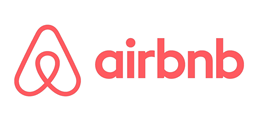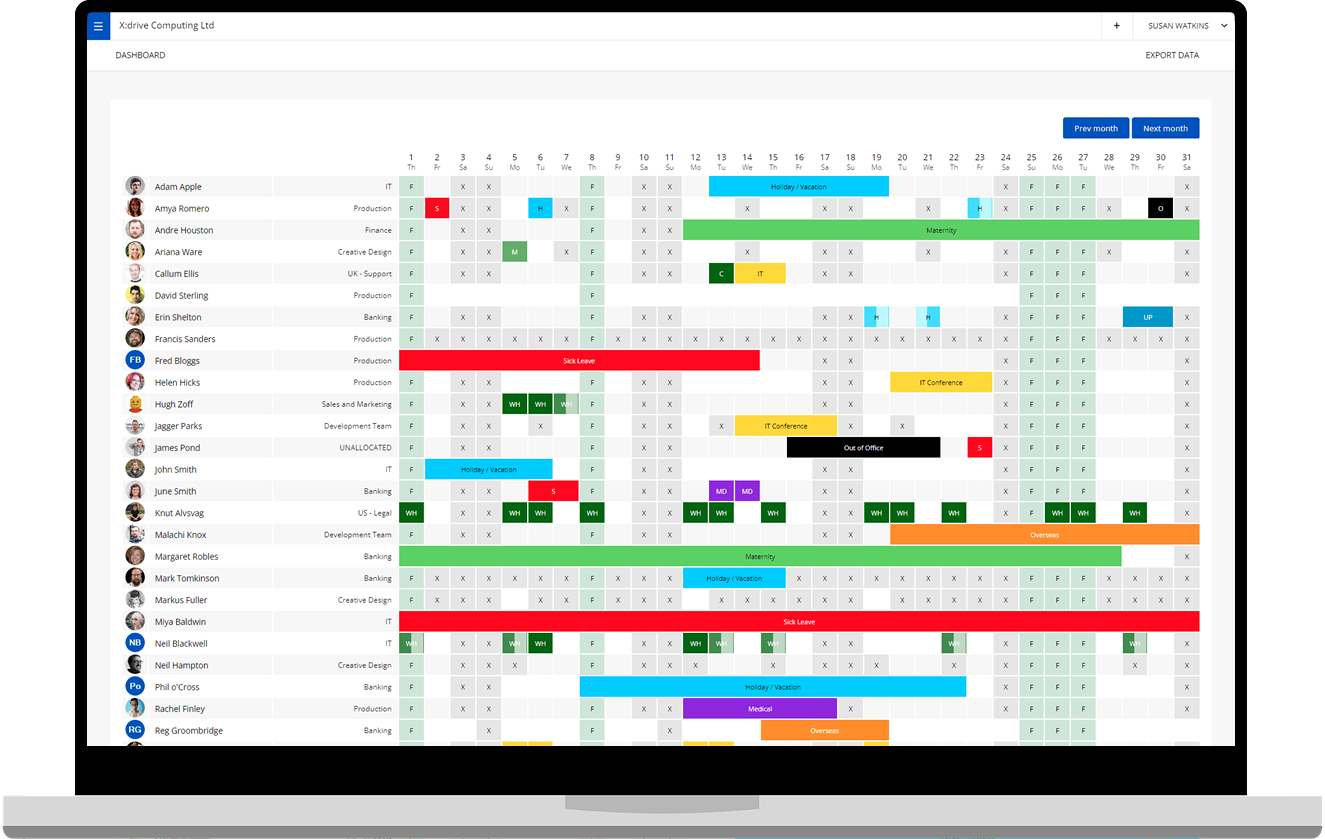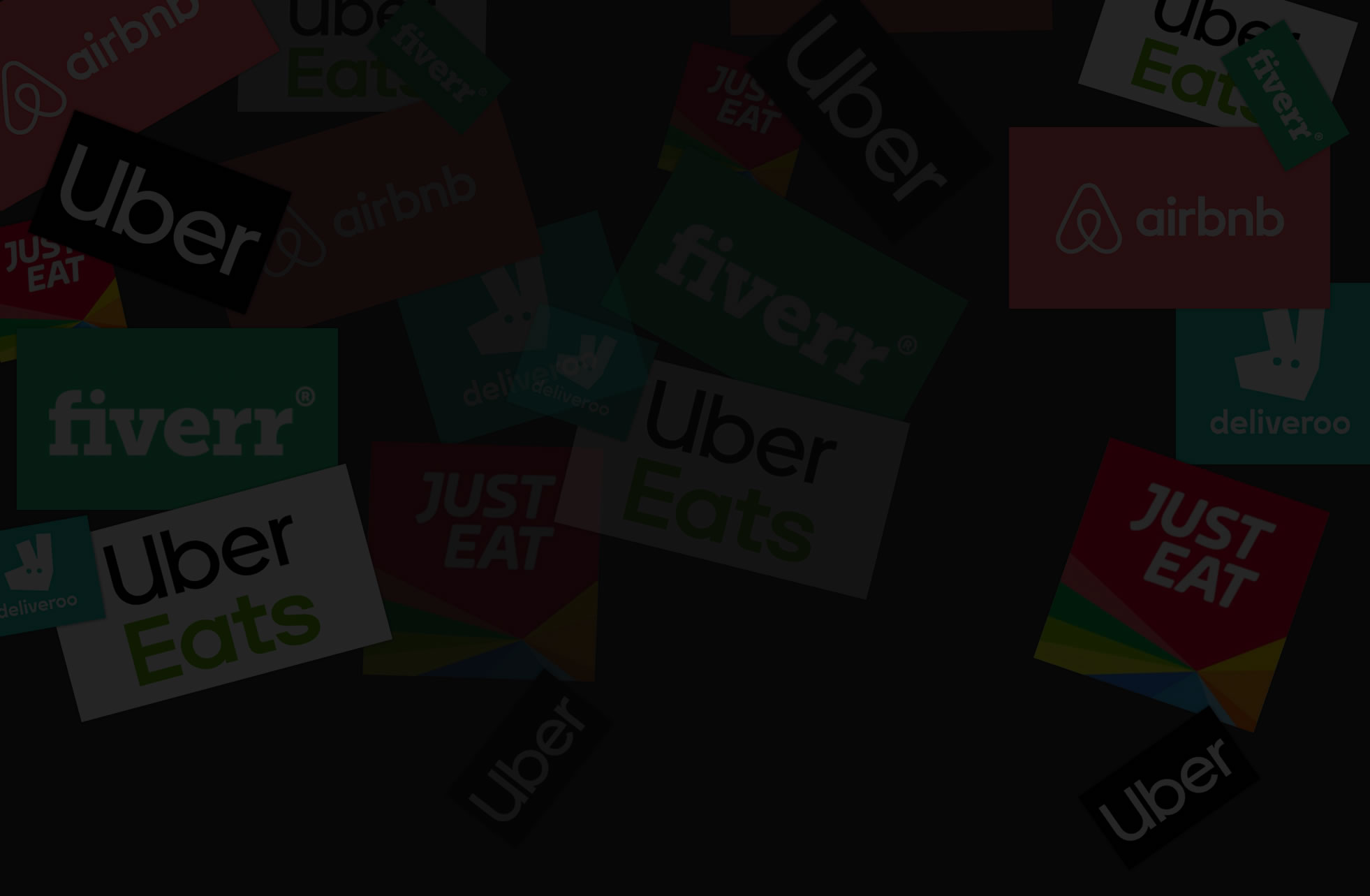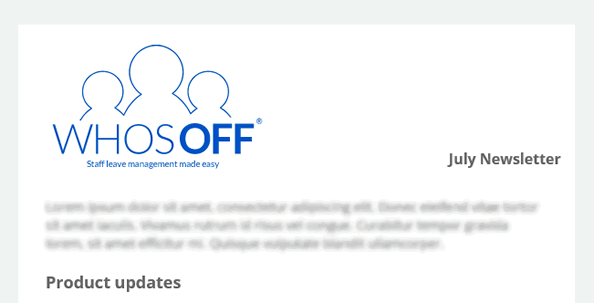The way people work is changing dramatically, and one of the biggest shifts is the rise of the gig economy. 1 in 10 adults now earns their living from short-term or freelance contracts, and most of them operate on self-employed terms… until now.
A landmark court case involving Uber – one of the world’s largest gig economy employers – has ruled that the ride hailing service should give its drivers paid holiday, because they are working in an employed capacity rather than as freelance contract drivers. The impact of this decision could be massive for other companies taking advantage of gig economy roles, and significantly affect the way gig economy employers manage staff logistics.
What is the gig economy – and who is driving it?
The gig economy is a term that has developed with the rise of companies like Uber, Deliveroo, AirBnB, Etsy and Fiverr, all of which contract people to work on a job-by-job basis – often at the last minute.








This type of work suits companies that offer regular services, but which don’t have a regular set of requirements to merit bringing permanent staff on board. Employees in the gig economy can scale work up and down based on their availability, and flex work around other demands in their lives.
Meanwhile, employers the gig economy benefit from an agile resourcing option, with fewer infrastructural and financial demands than putting people on their books. Until now…
Why is the Uber court case so important?
Before 2021, companies treated gig workers as self-employed contractors, meaning they didn’t need to provide benefits such as sick pay, pension contributions or annual leave.
However, the recent legal ruling involving Uber stated that its 70,000 drivers are actually performing the function of permanent employees – and they should be recognised as workers and offered basic employment rights as a result.
This ruling could have a massive impact for companies operating in the gig economy, as it’s likely that similar cases will be launched in order for the UK’s five million gig economy workers to improve their legal entitlements. But keeping track of practical benefits like annual leave is far from simple when you have tens of thousands of contractors on your book.
How can companies manage holiday in the gig economy?
Managing annual leave bookings when your team are all full-time permanently employed and working the same hours is hard enough. Coordinating holiday in the gig economy is a hundred times more challenging.
Why? Because there’s so much more to factor-in – and if it’s not managed carefully, miscalculations can be made. For example:
- When does the holiday year start and end if people are contracted on a job-by-job basis?
- How do you manage leave when there’s huge variation in the hours that people are available to work and the number of jobs they clock up?
- What notice period do people have to give in order to book leave, when they are used to taking on jobs at the last minute?
- Who approves leave when gig economy workers don’t have a direct line manager?
- How can you record holiday bookings and keep up to date with how much leave people have used when they’re based all over the country (or even the world)?
While exact entitlements will depend on the regions in which companies operate and the hours that employees work, firms operating a gig economy set-up can reduce manage many of the logistical challenges effectively through holiday planning software.
How can digital software improve leave management?
An online annual leave planner makes it simple for gig economy workers to request time off, wherever they are based, because they can access it on-the-go through their mobile device.
That request can be directed straight to a member of HR or staff coordinator, who can see centrally how many people have booked time off and make an informed judgement whether to approve new leave requests. This cuts back on unnecessary follow-up communications – and streamlining admin is critical when you have 70,000 people on your books.
A digital holiday management system also makes it easier to calculate entitlements and track how much leave each gig worker has booked, to ensure that people aren’t taking more time off than they are allowed. And the contractors themselves can log into the system to check how many days they have left to use, as well as the status of their latest leave applications.
Has the Uber ruling reshaped contract working arrangements forever?
Companies like Uber demonstrate the huge commercial potential of building a flexible, independent workforce, but also the logistical challenges that come with outside-the-box working models. And gig economy employers have a duty of care to make sure their team is looked after well, to avoid exploitation or worker burn out.
Inevitably, it takes time for legal frameworks to catch up with cultural shifts, so the Uber ruling is putting in place important rights for people working in the gig economy.
The challenge for companies affected by this ruling is putting processes and systems in place that respond effectively to new regulations, but limit the practical and financial impact of introducing a new annual leave system. Those organisations that invest in holiday planning software will find it easiest to make paid holiday work for everyone in the business.

WhosOff is an online leave planner, which empowers companies to calculate and track time off via a central, digital software platform. Book a free trial to explore.
Similar articles
10.APR.2025
As a business owner, HR manager, or professional responsible for managing a team, one of the key tasks you will face is understanding and planning for the number of working days in a year and working weeks in a year. Using an online leave management tool such as WhosOff can relieve some of this burden.
01.APR.2025
As the new financial year begins, businesses are gearing up to streamline operations, optimize resources, and ensure smooth workflows. One critical aspect of this preparation is managing staff leave effectively, here's where WhosOff can help.
28.JAN.2025
As a fundamental part of any business running smoothly, the management and tracking of staff leave is often a task that can be overlooked but can have a major impact on operations when things go wrong.
16.OCT.2024
Learn how our customers have accelerated their internal business processes by integrating with the WhosOff API to manage their staff leave and absence tasks.


